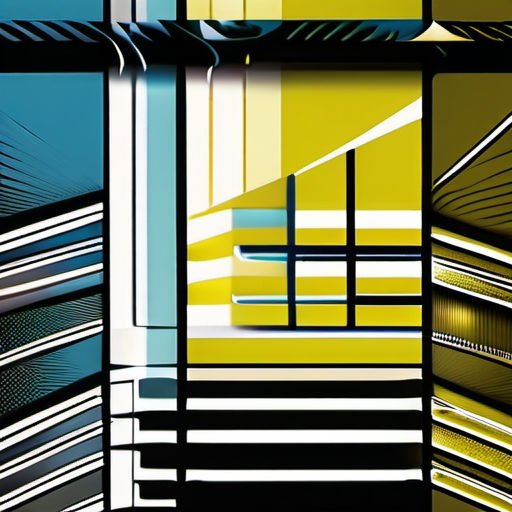What If Your World Is Just Code Cracked by a 60s Computer Wizard
A Sci-Fi Classic That Predicted the Simulation Hypothesis
World on a Wire is a 1973 German television miniseries directed by Rainer Werner Fassbinder, a visionary filmmaker known for pushing boundaries. This cerebral sci-fi gem dives deep into the mind-bending concept of simulated realities long before the idea exploded into popular culture. Centered on the notion that our world might be a complex computer simulation—a theme at the heart of the simulation hypothesis—the story plays with identity, reality, and control in ways that still resonate today. It’s both a thrilling narrative and a philosophical exploration that challenges viewers to question the foundations of their existence.
Fassbinder’s Visionary Approach to the Simulation Hypothesis
Exploring Reality Through a Sci-Fi Lens
World on a Wire masterfully blends science fiction with philosophical inquiry. Fassbinder uses the story of the simulated world to peel back the layers of reality itself. His approach is less about flashy effects and more about evoking an eerie atmosphere where nothing is quite what it seems. The simulation hypothesis threads through the plot as characters uncover disturbing truths about their environment and themselves.
Instead of traditional sci-fi spectacle, the series invites viewers to reflect deeply on what constitutes “real” experience. It predates many modern works centered on simulation themes, showing Fassbinder’s remarkable foresight.
Early Representation of Computer Technology
Released in the early ’70s, World on a Wire features pristine depictions of computers and data processing that were cutting-edge at the time. The show’s fictional virtual reality, named “Simulacron-1,” is a fully immersive simulated world populated by artificial beings unaware of their status. This anticipates concepts famously explored decades later in films like The Matrix.
The tech’s visual representation, though dated now, impressively captures the cold and mechanical essence of computing and simulation. It underscores the uncanny fusion of humanity and technology—a core tension for the simulation hypothesis.
Philosophical Questions Raised by World on a Wire
Identity and Consciousness in a Simulated World
One of the show’s most profound inquiries is how identity holds up when the environment itself is fabricated. Characters experience crises over their memories, choices, and awareness. Are they truly autonomous, or are all thoughts programmed by creators of the simulation?
This ties directly to real-world discussions of the simulation hypothesis. Philosophers and scientists debate whether consciousness could emerge within a simulated setting, or whether humans themselves might already be part of such a program.
The Nature of Reality and Existence
The series challenges viewers to reconsider their assumptions about the universe. If our perceived reality can be simulated with perfect fidelity, what does that mean for the “real” world? World on a Wire blurs these lines, suggesting reality could be layered—exists simultaneously on multiple levels of truth.
This mirrors arguments by proponents of the simulation hypothesis who theorize our universe may be one of countless nested simulations, potentially created by advanced civilizations.
How World on a Wire Influenced Later Sci-Fi
A Precursor to Iconic Films
World on a Wire laid important groundwork for later films that popularized simulation theory. The Matrix trilogy, released decades later, owes a creative debt to Fassbinder’s exploration of synthetic realities and questioning of consciousness.
Other works like Dark City and eXistenZ also echo themes first presented in this mini-series. It’s a testament to how ahead of its time World on a Wire was, especially considering the limited technology available for special effects back then.
The Enduring Appeal of the Simulation Hypothesis in Sci-Fi
Why does the simulation hypothesis continue to captivate storytellers and audiences alike? The idea taps into fundamental human fears and curiosities about control, free will, and the search for truth in a possibly artificial cosmos. Through World on a Wire and successors, sci-fi offers a playground for probing these existential puzzles.
Behind the Scenes: Fascinating Facts About World on a Wire
– World on a Wire was originally broadcast as two 90-minute episodes for German television, but is often shown as a four-part series internationally.
– Despite limited budget and technology, Fassbinder achieved remarkable atmosphere through lighting and camera work.
– The story is based on Daniel F. Galouye’s 1964 novel “Simulacron-3,” a lesser-known but influential sci-fi text.
– Fassbinder co-wrote the screenplay with author Fredd Bass, blending literary and cinematic talents.
– The series was one of Fassbinder’s few ventures into science fiction, typically known for social dramas.
Simulation Hypothesis: Scientific and Cultural Relevance Today
Philosophers and Scientists Weigh In
World on a Wire’s exploration of simulated reality foreshadows current philosophical and scientific debates. Today, thinkers like Nick Bostrom have popularized the simulation hypothesis within serious academic discussions. Bostrom’s “Simulation Argument” proposes that one of three possibilities must be correct: civilizations do not reach a posthuman stage; posthuman civilizations do not run ancestor simulations; or we are almost certainly living in a simulation.
This idea continues to fuel research in computer science, physics, and artificial intelligence, especially as virtual reality technologies advance. The boundary between simulation and reality grows increasingly blurred.
Pop Culture’s Ongoing Obsession
Interest in the simulation hypothesis has surged in popular culture including films, books, video games, and music. It provides fertile narrative ground for exploring control systems, ethical questions about creator and creation, and what it means to be human in a digitized world.
World on a Wire remains a seminal work within this lineage, offering a thought-provoking and stylish meditation that deserves wider recognition among sci-fi enthusiasts and philosophy lovers alike.
Unlocking the Layers: Why Watch World on a Wire Today?
– Deep philosophical engagement unlike usual sci-fi fare
– Early cinematic exploration of the simulation hypothesis before it was trendy
– Challenging plot that will keep you guessing until the end
– Atmospheric direction and remarkable acting from a pioneering filmmaker
– Insight into early computer culture and futuristic speculation from a ’70s perspective
Whether you are fascinated by the simulation hypothesis or enjoy cerebral storytelling, World on a Wire offers a uniquely rich and rewarding experience. Its questions about reality, identity, and control remain as relevant—and mystifying—as ever.
Dare to dive into this vintage mind-bender and rethink your own place in the universe. For more on philosophical sci-fi and thought-provoking cinema, explore resources like the [Stanford Encyclopedia of Philosophy’s entry on the Simulation Argument](https://plato.stanford.edu/entries/simulation-argument/).
Challenge the very nature of your reality and discover why this cult classic stands the test of time.
What will you choose to believe about your own world?












Post Comment